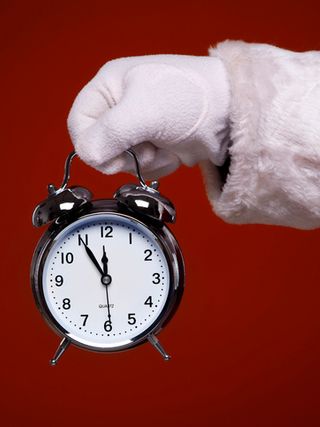Sleep Apnoea
Enjoy a restful sleep after a long day of commuting, working and other activities.

Unfortunately, sleep apnoea can disrupt this, leading to restless nights and fatigue during the day. Sleep apnoea is a sleep disorder where breathing repeatedly stops and starts during sleep, making it difficult to get a restful night. If you’re experiencing symptoms of sleep apnoea, our friendly team in Armadale can help diagnose and treat the condition, providing you with better sleep and improved health.
What is Sleep Apnoea?
Sleep apnoea is a sleep disorder characterised by pauses in breathing or Sleep apnoea occurs when your breathing is interrupted during sleep, either because of a blocked airway (obstructive sleep apnoea, or OSA) or a lack of signals from the brain (central sleep apnoea, or CSA).
The most common form, OSA, happens when the muscles in your throat relax and block your airway, causing you to wake up briefly to start breathing again. These interruptions can happen multiple times a night, leading to poor-quality sleep and various health issues.

Risk factors for sleep apnoea
Not getting a good night’s sleep? Sleep apnoea can manifest through several signs, including:
- Loud snoring: Frequent and loud snoring, especially in obstructive sleep apnoea.
- Breathing pauses: Episodes where breathing stops and starts during sleep, often reported by a partner.
- Daytime fatigue: Waking up tired and feeling drowsy throughout the day.
- Morning headaches: Frequent headaches upon waking.
- Choking or gasping: Abrupt awakenings accompanied by choking or gasping for breath.
- Mood changes: Irritability, trouble concentrating, and feeling mentally fatigued.
If you or a loved one experience any of these symptoms, it's important to seek professional advice to determine if sleep apnoea is the cause.
Sleep apnoea symptoms
If you're not getting a good night's sleep, you may have sleep apnoea. Sleep apnoea can manifest through various symptoms, and these may vary in severity. Common signs and symptoms of sleep apnoea include:
- Excessive weight: Being overweight can cause fat deposits around the airway, leading to blockages.
- Narrowed airway: You may naturally have a narrow airway, or your tonsils or adenoids might be enlarged, restricting airflow.
- Chronic nasal congestion: Consistent nasal congestion, especially at night, can contribute to sleep apnoea.
- Smoking and alcohol: Smoking and excessive alcohol consumption can relax the throat muscles, worsening the condition.
- High blood pressure: Sleep apnoea is more common in individuals with hypertension.
- Genetics: A family history of sleep apnoea increases your likelihood of developing the disorder.

Sleep apnoea treatments
If you suffer from obstructive sleep apnoea, there are several possible treatments to help your condition. Some steps include:
- Weight loss: Losing ten per cent of your body weight can make a difference in sleep apnoea
- No alcohol or sedatives: Avoiding alcohol and sleeping pills help your airway close during sleep. It can keep you breathing for longer periods
- Sleeping on your side: This can help if you only have mild sleep apnoea when you sleep on your back
- Nasal sprays: These can treat sinus problems if nasal congestion makes it harder to breathe while you sleep
Many patients with sleep apnoea will require more treatment beyond these simple steps.
- Oral appliances: Do you have mild or moderate sleep apnoea? We can create a custom-made dental appliance, or "oral mandibular advancement" device. These appliances keep your tongue from blocking your airway as you sleep. Our experts can decide which ones may be right for your OSA.
- Mandibular Advancement Splint (MAS): Worn by patients as they sleep, this device helps the bottom jaw slightly protrude forwards in order to tighten certain muslces in the upper airway and allowing for more stable breathing throughout the night.
- Continuous Positive Airway Pressure (CPAP): These devices can include masks that you wear over your nose, mouth or both. An air blower forces constant air through your nose or mouth. The air pressure is just enough to keep your upper airway's tissues from relaxing too much while you sleep. A similar device is the BPAP which has two levels of airflow that change when you breathe in and out. CPAP machines are the most effective treatment for OSA, reducing daytime sleepiness and improving sleep quality. However, some people with OSA find the mask or feeling of pressure difficult to tolerate.
- Surgical Treatment: Doctors rarely use surgery to treat OSA. Some treatments include the uvulopalatopharyngoplasty (UPPP). This procedure removes some of the throat's soft tissues that collapse the airway during sleep. Although it's effective at reducing snoring, it doesn't always treat obstructive sleep apnoea.

OSA can also impact your health when left untreated. This health condition can lower the flow of oxygen to your organs and cause uneven heart rhythms. If you suffer from these symptoms, speak with your General Medical Practitioner.
Advantages of a sleep apnoea treatment
Receiving a sleep apnoea treatment can make a real difference in your life, from health to happiness.
- Better sleep: The key benefit of seeking OSA treatment is better sleep, so you will wake up feeling more refreshed and you won’t struggle with tiredness all day.
- Improved health: Sustained poor sleep can have negative health effects, from high blood pressure and an increased risk of hypertension, to depression and obesity.
- Non invasive: Using a mandibular advancement splint is a simple, non-invasive treatment, so you can enjoy the benefits of better sleep without medication or surgery.
What to expect in your first appointment?
When you visit us for sleep apnoea treatment, here’s what you can expect:
- Initial consultation: We’ll perform a thorough exam and may take x-rays to assess your mouth and airway.
- Custom impressions: If an oral appliance is recommended, we’ll take impressions of your teeth to create a device that fits perfectly.
- Fitting and adjustments: Once your appliance is ready, we’ll ensure it fits comfortably and provide guidance on how to wear and care for it.
- Ongoing support: We’ll check in with you during regular dental visits to ensure your appliance is working effectively and make any necessary adjustments.
If your general practitioner has advised you get a custom-made mandibular advancement splint, you will need to contact a dentist to have one made.
Why treat sleep apnoea?
Untreated sleep apnoea can lead to serious health problems, including heart disease, high blood pressure, and diabetes. By seeking treatment, you can experience:
- Better sleep: Wake up refreshed and energised, improving your overall quality of life.
- Improved health: Reducing sleep apnoea symptoms can lower your risk of hypertension, depression, and obesity.
- Non-invasive relief: Oral appliances are a simple, non-invasive treatment option for many people, offering relief without surgery or medication.
Don’t let sleep apnoea affect your life any longer.
At 818 Dental, our experienced team is here to provide personalised solutions that help you breathe easier and sleep better. Contact us today to schedule your appointment.
Frequently asked questions
Obstructive Sleep Apnoea is when your airway partially or fully closes during sleep. This causes you to wake up regularly throughout the night, resulting in very poor sleep. Often, sufferers won’t even realise they have woken up numerous times throughout the night, but will wonder why they are so tired during the day, and may suffer headaches and other issues as a result.
For mild and moderate cases, medical practitioners may recommend a sleep mouthguard to help keep the airways open and restore restful sleep patterns.
Obstructive sleep apnoea can be cured through surgical intervention or by losing weight - or both - depending on your specific circumstances (not all those who suffer are overweight, for example).
In the meantime, it can be treated with devices such as a sleep mouthguard that can help to keep the airways open so you can enjoy a more restful sleep. This device tends to work best for those with mild to moderate cases.
Sleep apnoea, otherwise known as central sleep apnea, is when the brain doesn’t send the right signals to the muscles that control breathing. In the case of obstructive sleep apnoea, it’s more of a physical issue, as your airway becomes partially or completely blocked during sleep.
Obstructive sleep apnoea is the more common of the two.
The dangers of obstructive sleep apnoea in the short term is poor sleep, tiredness during the day, and headaches. Over time, the sustained lack of restful sleep can lead to an array of more serious health problems, such as high blood pressure, hypertension, depression, obesity, and strokes.
If left untreated, sleep apnoea can lead to a variety of health problems. These range from tiredness and moodiness, to depression and high blood pressure, to strokes and obesity.
That’s why it’s important to be wary of the signs of sleep apnoea, listen to your partner if they say you are exhibiting the symptoms, and seek medical attention. While it can take time for more serious symptoms to appear, sleep apnoea can be very disruptive to your alert levels and general happiness in the short term.




